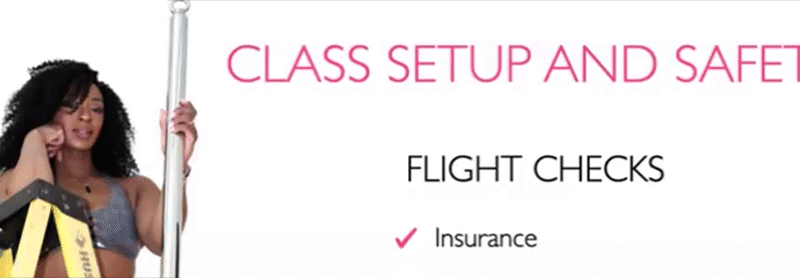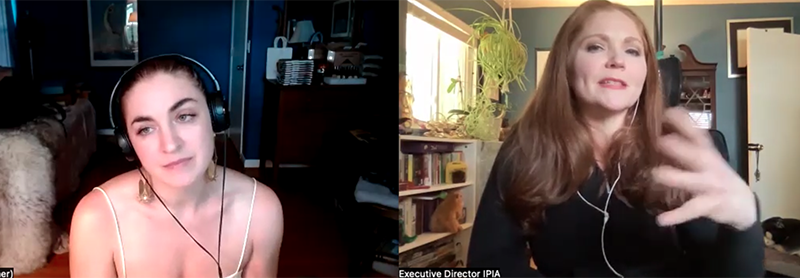[memberonly level=“Group Membership for Businesses of 2-5 individuals, Student, Individual or Solo-Preneur, PoleCon Membership”] This…

Protect Your ASSets: Performance Liability Insurance Explained (Part 2 of 2)
Are you a professional pole, aerial, or circus performer? Do you have performer insurance? What exactly is performers’ insurance? Often performers are not aware of it, especially if they are covered under the venue or employer’s policy. However, some clubs and locations may require you to carry your own. Even if they do not, it is probably worthwhile to have it in your back pocket. If all of this already sounds overwhelming, fear not! let’s break it down.
Breaking Down Getting Coverage Step by Step.
Prepare a Business “Commentary”
To help your insurance agent understand your business, prepare a one to two-page description of your background; experience; and size and scope of operations. Be honest and straightforward about your business. The agent will use this information to weed out underwriters who have little interest in your type of business.
Find an Insurance Representative
Shop around. Look for agencies that specialize in “commercial lines.” Just because an agency sells auto or life insurance does not mean that they are experienced in business insurance or even sell it. Ask friends and/or colleagues whom they use and check out our IPIA insurance partner. Make sure to choose a representative you feel comfortable working with, someone who is communicative and responsive to your needs. You may decide to work with an agent who represents a specific company or companies or go with a broker who independently and directly represents you in the marketplace. Brokers may offer a broader range of coverage options because they represent you and not the insurance company, but either choice is fine. Just be sure your representative understands your insurance needs and helps you design a package that provides coverage appropriate to your situation. It’s okay to be wary of insurance salespeople. A healthy dose of skepticism means you’ll use good judgment when making your decision about who to work with and what coverage you’re going to choose.
Get Several Quotes
Armed with relevant knowledge of your business from your Business Commentary and knowledge of the insurance industry, your agent will organize specifications for quotation and identify desired options. These specifications are transcribed into insurance policy applications. Many independent brokers will be able to offer quotes by competing insurance companies. In some cases, a group plan offered by an organization to which you belong — or a policy designed specifically for artists — may offer a better price and set of options, but may not have the advantage of having a local agent.
Weigh the Merits of Quotes Gathered
Ideally, your agent will list each suggested coverage, including its particular cost, in order of the catastrophic potential that risk represents to the business. This way, you can make educated decisions about adding to or cutting back on coverage to achieve the best cost/ benefit balance. If you feel the quote is too high for your budget, ask what options you could change to reach a price you can live with.
Ask Questions
Ask about what is covered, and even more importantly, what is not covered. If you are not satisfied with the quality of the answers or do not feel that the agent is being responsive, keep shopping and find a company you trust. When you get your policy, read it, and again, ask for clarification of anything you do not understand.
Things to Watch Out For:
- Proper protection: Don’t be uninsured. If you can’t afford complete coverage, purchasing some insurance is better than having none. Avoid unnecessary coverage.
- Gaps in coverage: Make sure you understand the scope of your coverage. If there are known gaps due to cost, understand what they are and make an alternate plan.
- High deductibles/low deductibles: Insurance companies offer lower premiums for policies with higher deductibles (the amount you pay before insurance kicks in). They are understandably wary of customers who make many small claims. Weigh the value of lower premiums with your tolerance for a loss. Ask your agent for quotes with different deductible levels. A deductible of $500 – $2,500 is pretty standard, with deductibles at the higher end of the range as the amount of property coverage increases.
- Exclusions: Read the policy, know what the exclusions are, and don’t be afraid to ask questions
- Stability of the insurance carrier: It’s a good idea to check the financial stability of the insurance underwriter before signing up for the policy. A.M. Best provides free basic rating reports on insurance companies.
- Claims: Ask your insurance representative if any claims have been made on the type of insurance they’re offering and what turn-around time you would expect in the event of a claim. If no claims have been made or you feel service is unreasonable, choose a different company with which to work.
Insurance is not a fun subject for anyone, especially artists. It’s not creative or lyrical. Money can sometimes be unpredictable in the entertainment industry, especially freelance so one may argue that insurance is not an expense they can budget. Though certainly understandable, imagine how much the legal costs would be if something were to happen. Cover your butt and keep on dancing!



